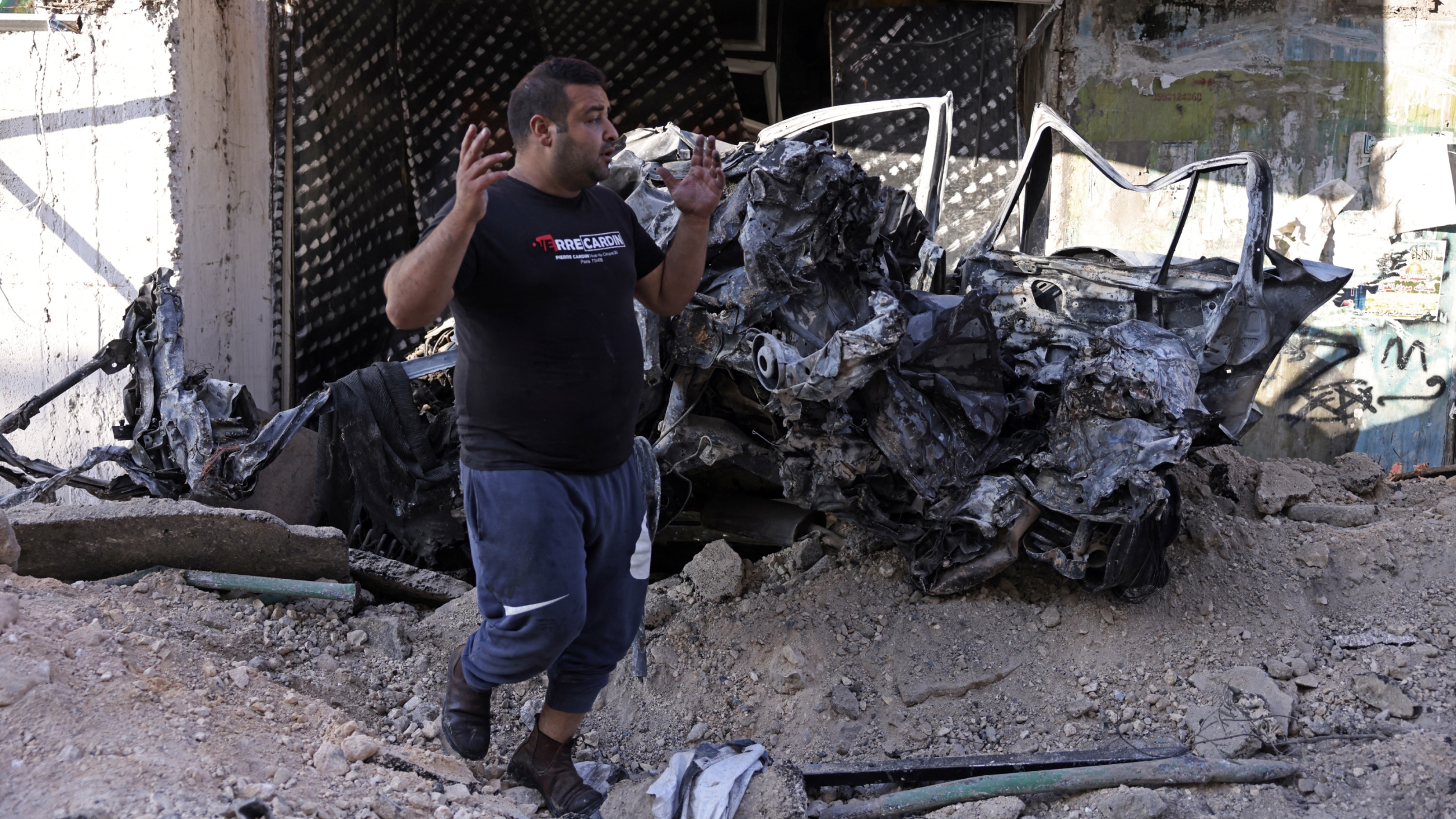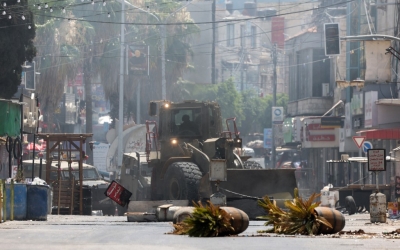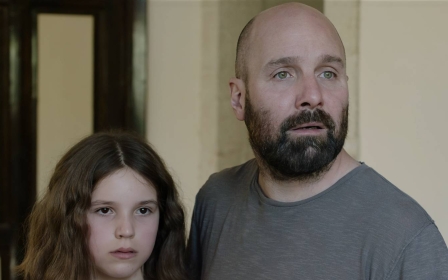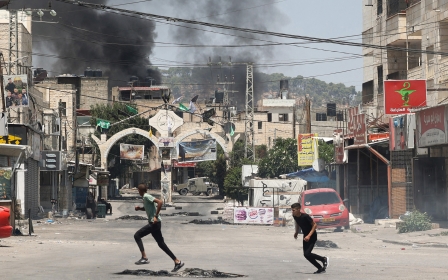Jenin under attack: Israel bulldozers 'plough' streets and destroy infrastructure

Residents of the Jenin refugee camp have been left stunned by the sheer extent of the destruction left in the wake of the Israeli raid which struck the occupied West Bank neighbourhood in the past few days.
Muhammad Abu Talal, a resident of the camp, told Middle East Eye said that Israeli bulldozers levelled most of the streets surrounding the camp from the moment they first stormed it on Monday morning.
Piles of rubble were left mounted around the edges of the roads after the bulldozers were finished, in addition to the destruction of the camp's infrastructure, with water and electricity networks left ruined.
“Most of our homes were cut off from electricity at the beginning of the invasion, and we saw many water pipes exploded from under the streets, which were bulldozed and destroyed,” he added.
A number of witnesses to the Israeli raid, which has left 10 Palestinians dead, said it brought back memories of 2002's Operation Defensive Shield, the massive Israeli operation targeting Palestinian groups in the West Bank that saw hundreds killed, including in Jenin.
New MEE newsletter: Jerusalem Dispatch
Sign up to get the latest insights and analysis on Israel-Palestine, alongside Turkey Unpacked and other MEE newsletters
Dozens of military vehicles and hundreds of Israeli soldiers began storming the camp and many adjacent areas in the early morning hours of Monday, under heavy cover from helicopters that bombed several targets.
Palestinians in the camp said their streets looked “ploughed” after the bulldozers had gone.
When the darkness cleared and Monday's sun lit up the area, it became clear that everything had changed.
"The camp's streets are all dug up and uprooted," Abu Talal said.
"Bulldozers have left nothing as it is here, they turned our streets into crumbs."
'Uprooted'
The municipality of Jenin announced in a brief statement that Israeli military vehicles destroyed the main water lines in the camp and its surroundings.
Israeli soldiers prevented the municipality crews from working in the affected places or even reaching them to assess the damage.
"Please rationalise water consumption and preserve the quantities available to you. We appeal to you to preserve what you have of household supplies due to the occupation forces besieging the city and its camp," said the statement.
The destruction was not only limited to streets, water and electricity networks, but extended to homes, residential buildings, and even hospitals and mosques.
'Telephone lines were destroyed, and the internet. The aim is to prevent communication with the camp and isolate it from the outside world'
- Sari Samour, Jenin resident
Tawalbeh Mosque in the centre of the camp was severely damaged as a result of the bombardment. Its windows were shattered and its doors were damaged, amid threats to bomb it from warplanes.
Sari Samour, a resident of one of the neighbourhoods adjacent to the camp, said that at 7 am, an Israeli bulldozer levelled the street near the Tawalbeh mosque.
He explained that the street was bulldozed several times so that it was no longer suitable for vehicle use at all.
“Telephone lines were destroyed as well, and thus the internet. The aim is to prevent communication with the camp and isolate it from the outside world.”
Residential buildings were so severely damaged that Israeli soldiers made large holes in the walls of the houses for snipers to position themselves and shoot through, according to Sammour.
Al-Amal Hospital and Dr Khalil Suleiman Hospital were exposed to direct fire from Israeli soldiers with heavy weapons, which damaged many of their facilities.
The Israeli army claimed its actions were aimed at detonating explosive devices planted by Palestinians in the streets and homes.
'Vandalism acts'
The Palestine Red Crescent Society said in a statement that its crews had evacuated five families since the morning from homes damaged by the bombing, and that they had worked to evacuate women and children from the homes immediately.
Yasmine Hantoly, a journalist from Jenin, said that the structure of the camp was already weak due to the density of the population and the large number of adjoining houses, and that the Israeli occupation forces deliberately struck several populated areas in the Jenin camp.
The first strike on the camp hit a social club, which caused extensive damage to other houses nearby.
“All these scenes bring us back to the 2002 invasion, everything similar to it, the scale of destruction within less than 24 hours of the start of the aggression, and the bulldozing of streets to make them unusable, as well as the deliberate bombing of homes and civilian facilities,” said Hantoly.
“The only victims are the camp’s people from these vandalism acts. The soldiers invade everything, climb into buildings and storm homes, taking them as military barracks and terrorising children and women without consideration."
Middle East Eye delivers independent and unrivalled coverage and analysis of the Middle East, North Africa and beyond. To learn more about republishing this content and the associated fees, please fill out this form. More about MEE can be found here.





